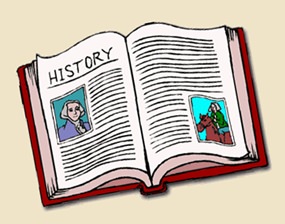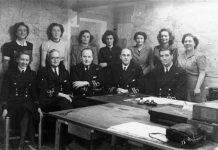Today is Thursday, Dec. 10, the 344th day of 2015. There are 21 days left in the year.
Highlights in history on this date:
1520 – Martin Luther publicly burns the papal edict demanding that he recant or face excommunication from the Roman Catholic Church.
1719 – The first recorded sighting of the Aurora Borealis takes place in New England.
1810 – Napoleon Bonaparte annexes northern Hanover, Bremen, Hamburg, Lauenburg and Lubeck, Germany.
1898 – The Treaty of Paris between United States and Spain ends the Spanish-American War with Spain ceding Cuba, Puerto Rico, Guam and the Philippines to the United States for $20 million.

1899 – British forces are defeated by the Boers at Stromberg, South Africa.
1906 – U.S. President Theodore Roosevelt becomes the first American to be awarded the Nobel Peace Prize, for helping mediate an end to the Russo-Japanese War.
1931 – Social worker and pacifist Jane Addams becomes a co-recipient of the Nobel Peace Prize, the first American woman so honored.
1936 – King Edward VIII of Britain abdicates with the intention of marrying American divorcee Wallis Simpson. His brother, the Duke of York, becomes King George VI.
1948 – U.N. General Assembly in Paris unanimously adopts the Universal Declaration of Human Rights. Six members of the Soviet bloc, Saudi Arabia and South Africa abstain.
1950 – U.N. Mideast peace mediator Ralph J. Bunche is presented the Nobel Peace Prize, the first black American to receive the award.
1958 – The first domestic passenger jet flight takes place in the United States as a National Airlines Boeing 707 flies 111 passengers from New York City to Miami.
1963 – Zanzibar becomes independent within the Commonwealth.
1964 – Dr. Martin Luther King Jr. receives the Nobel Peace Prize.
1967 – World’s first commercial thermonuclear blast takes place in the U.S. state of New Mexico, to give access to natural gas from underground deposits.
1976 – In Lebanon, a truce accord ends fighting between Muslims and Christians in the south, clashes among Palestinian factions, heightened tensions among rival Christian parties and a Syrian crackdown against the Lebanese press.
1980 – Milton Obote is sworn in as Uganda’s president, becoming the first African president ousted in a military coup to recapture the presidency. He was ousted by the army for the second time in 1985.
1983 – Democracy returns after seven years of dictatorship in Argentina, as Raul Alfonsin is sworn in as president.
1988 – Chinese troops shoot into crowds of Tibetans demonstrating in Lhasa for human rights.
1993 – African National Congress leader Nelson Mandela says he and President F. W. de Klerk are bound by the Nobel Peace Prize they accepted to spend the rest of their lives building a democratic, nonracial South Africa.
2006 – Hundreds of thousands of Hezbollah members and their allies flood central Beirut, demanding changes in the Lebanese government’s makeup as soldiers strengthen protection around the offices of the Western-backed premier.
2007 – Cristina Fernandez is sworn in as Argentina’s first elected female president.
2009 – President Barack Obama accepts the Nobel Peace Prize, offering a striking defense of war at the same time as he makes an impassioned case for building a “just and lasting peace.”
2013 — President Barack Obama energizes tens of thousands of spectators and nearly 100 visiting heads of state at a memorial service in Johannesburg with a plea for the world to emulate Nelson Mandela, “the last great liberator of the 20th century” in a eulogy for the prisoner who became peacemaker.
2014 — Brazil takes a significant step to address the human rights violations of its military dictatorship, releasing an exhaustive report that details nearly two decades of government-approved political killings and torture.
Today’s Birthdays:
Ada King Lovelace, English mathematician and world’s first computer programmer (1815-1852); Cesar Franck, Belgian composer (1822-1890); Emily Dickinson, U.S. poet (1830-1886); Melvil Dewey, U.S. librarian/inventor of the Dewey Decimal System (1851-1931); Mary Norton, English children’s author (1903-1992); Susan Dey, U.S. actress (1952–); Kenneth Branagh, British actor (1960–).
Thought For Today:
I dislike arguments of any kind. They are always vulgar, and often convincing — Oscar Wilde, Irish poet, dramatist, author (1856-1900).
Copyright 2015 The Associated Press. All rights reserved. This material may not be published, broadcast, rewritten or redistributed.




